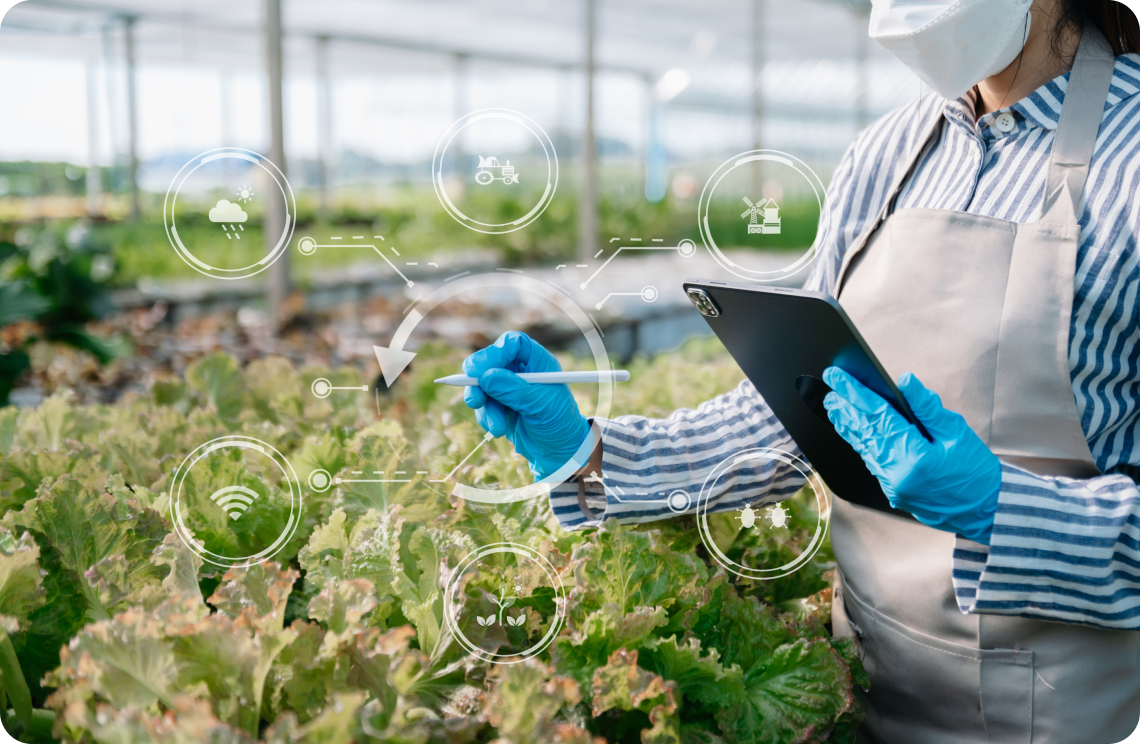About

The Netherlands is Europe’s leading importer of fresh produce from outside the EU, accounting for 30% of the total, and processes nearly €8 billion in fresh potatoes, fruit, and vegetables, as well as more than €7 billion in flowers and plants each year. Key gateways like the Port of Rotterdam and Schiphol Airport serve as critical global logistics hubs for these high-value, perishable goods.
However, the sector faces complex challenges, from tightening sustainability regulations and cross-border documentation to widespread inefficiencies—currently, about 14% of food is lost in the supply chain, elevating both costs and CO₂ emissions. Most supply chain operators are SMEs with limited access to advanced digital tools.
The RESULD project was launched to address these urgent needs and opportunities. Building on proven experience and insights from successful initiatives like Spark! Living Lab, GEDAC, and AGF-chain, RESULD aims to accelerate the digitalization and greening of agri-food, flower, and plant supply chains. The objectives are to enable end-to-end transparency and traceability, provide SMEs with accessible digital solutions, and solidify the Netherlands’ leadership in sustainable logistics.
By fostering collaboration across industry and research, RESULD targets a measurable impact—delivering over €90 million in added value and reducing CO₂ emissions by 55 million kilograms through smarter, greener, and more resilient international trade corridors.
Use Cases
Use-case 1:
Exchange of phytosanitary data
and certification
RESULD’s phytosanitary use-case focuses on improving the quality, consistency, and availability of data required for exporting agricultural products—such as fruits and vegetables—from the Netherlands, particularly to the UK. Rather than digitizing the certification process itself, RESULD standardizes, formats, and verifies all relevant data associated with phytosanitary certification. This effort reduces manual errors, ensures data is accurate and consistent across systems, and makes information more accessible throughout the supply chain for approximately 500,000 annual shipments.

By enhancing how data is managed and shared, RESULD streamlines customs preparations, strengthens compliance, and increases transparency and traceability. While the current use-case centers on the UK corridor, this data-driven framework can be easily applied to other global tradelanes, supporting more reliable and resilient agricultural trade worldwide.

Use-case 2:
Digital transformation and emission reduction of international tradelanes
The second RESULD use-case aims to make international supply chains for fresh produce, flowers, and plants both greener and more transparent, with a focus on key routes from Africa to Europe. By standardizing and verifying critical data—such as product origin, quality, emissions, and financial transactions—RESULD helps all parties access reliable, up-to-date information across complex trade networks. This improved data management reduces waste, enables more sustainable logistics choices, and supports compliance with new environmental regulations.
Crucially, the solution empowers small and medium-sized enterprises to participate in digital supply chains, offering insights needed for greener decisions and easier traceability. Although this use-case highlights the Africa-Europe corridor, the approach can be adapted to other global supply routes—contributing to more sustainable, efficient, and trustworthy food and flower chains worldwide.

